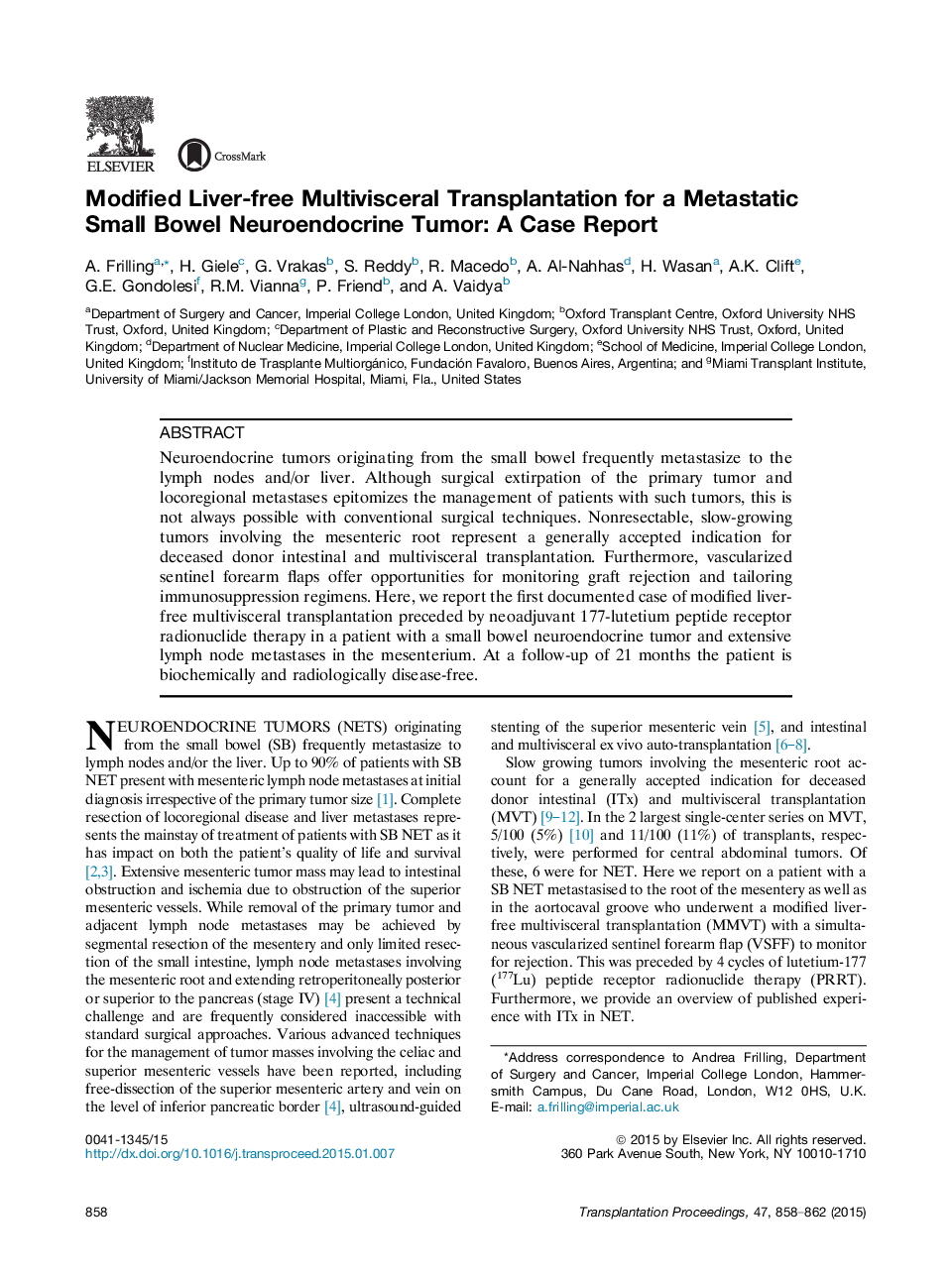| Article ID | Journal | Published Year | Pages | File Type |
|---|---|---|---|---|
| 6247956 | Transplantation Proceedings | 2015 | 5 Pages |
Abstract
Neuroendocrine tumors originating from the small bowel frequently metastasize to the lymph nodes and/or liver. Although surgical extirpation of the primary tumor and locoregional metastases epitomizes the management of patients with such tumors, this is not always possible with conventional surgical techniques. Nonresectable, slow-growing tumors involving the mesenteric root represent a generally accepted indication for deceased donor intestinal and multivisceral transplantation. Furthermore, vascularized sentinel forearm flaps offer opportunities for monitoring graft rejection and tailoring immunosuppression regimens. Here, we report the first documented case of modified liver-free multivisceral transplantation preceded by neoadjuvant 177-lutetium peptide receptor radionuclide therapy in a patient with a small bowel neuroendocrine tumor and extensive lymph node metastases in the mesenterium. At a follow-up of 21 months the patient is biochemically and radiologically disease-free.
Related Topics
Health Sciences
Medicine and Dentistry
Surgery
Authors
A. Frilling, H. Giele, G. Vrakas, S. Reddy, R. Macedo, A. Al-Nahhas, H. Wasan, A.K. Clift, G.E. Gondolesi, R.M. Vianna, P. Friend, A. Vaidya,
